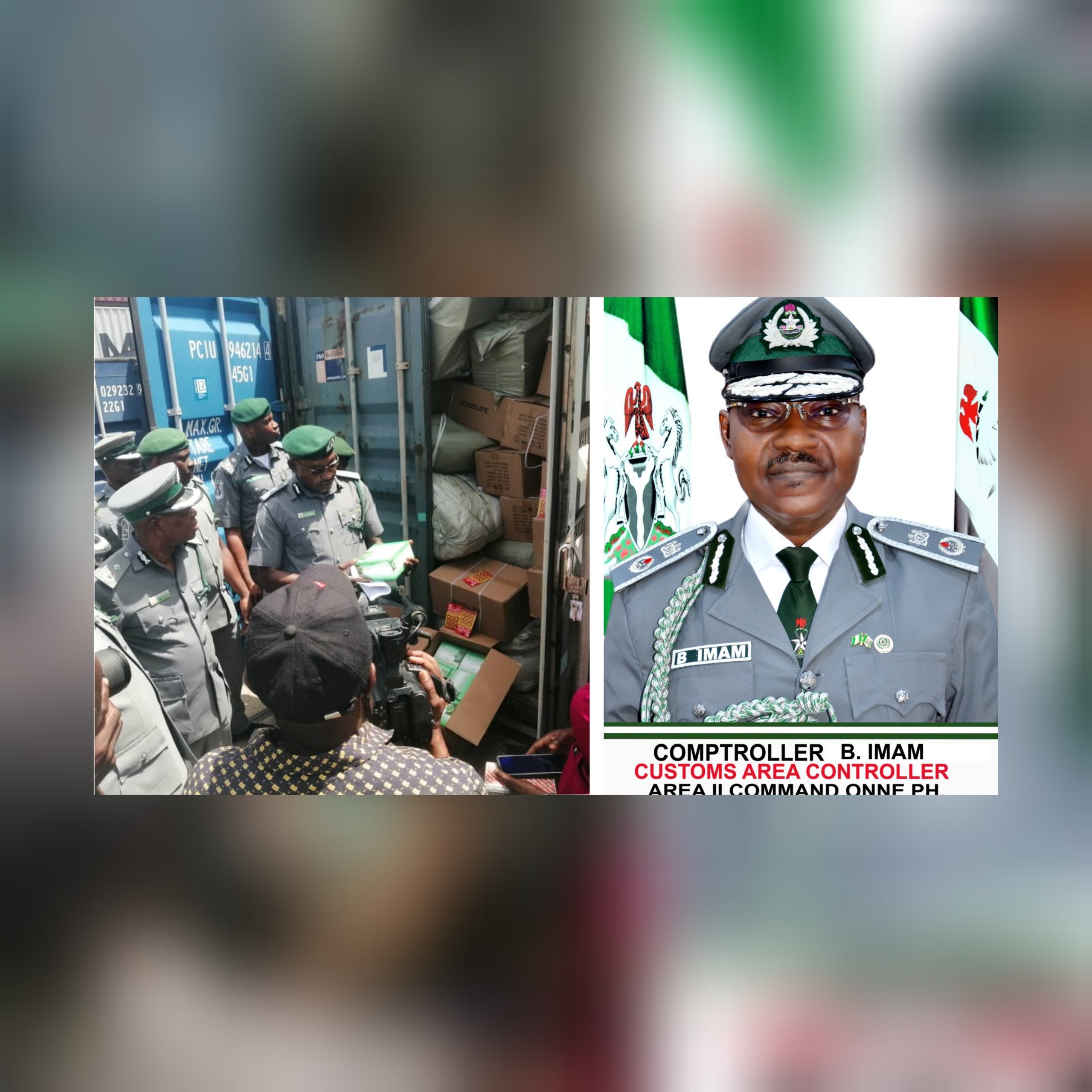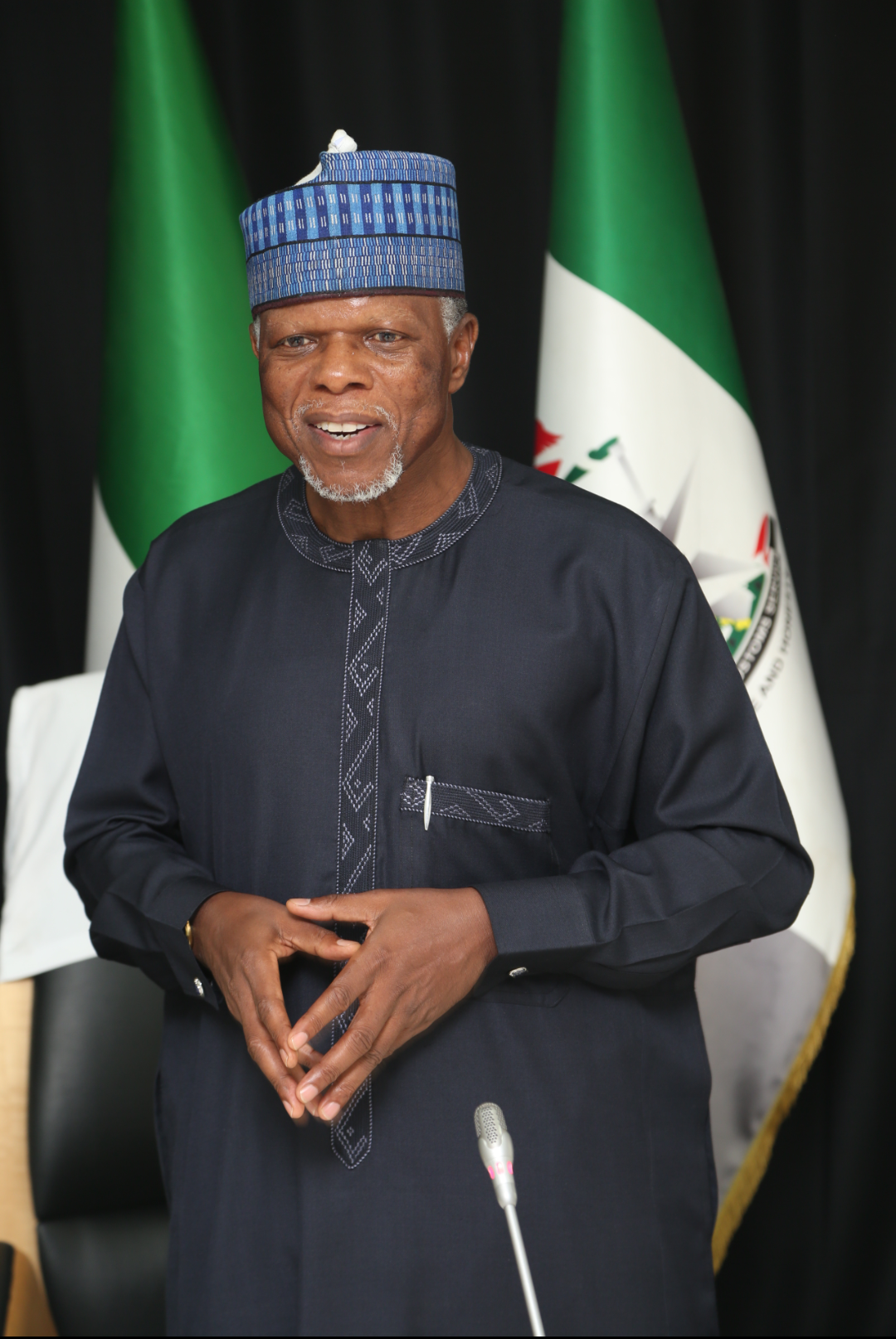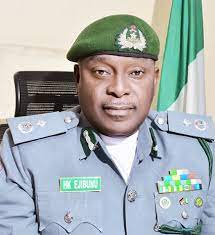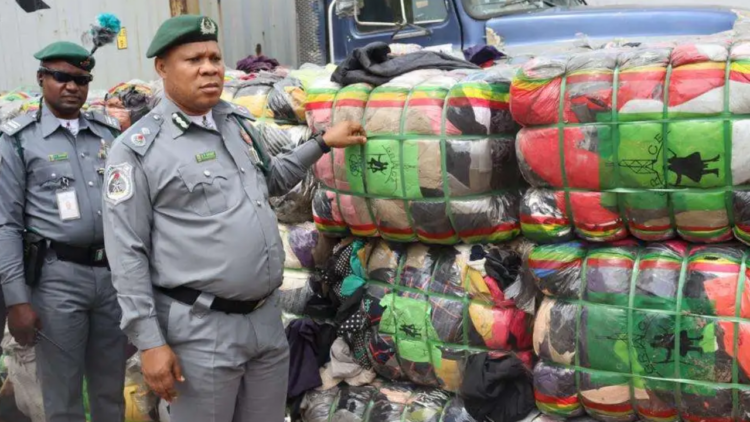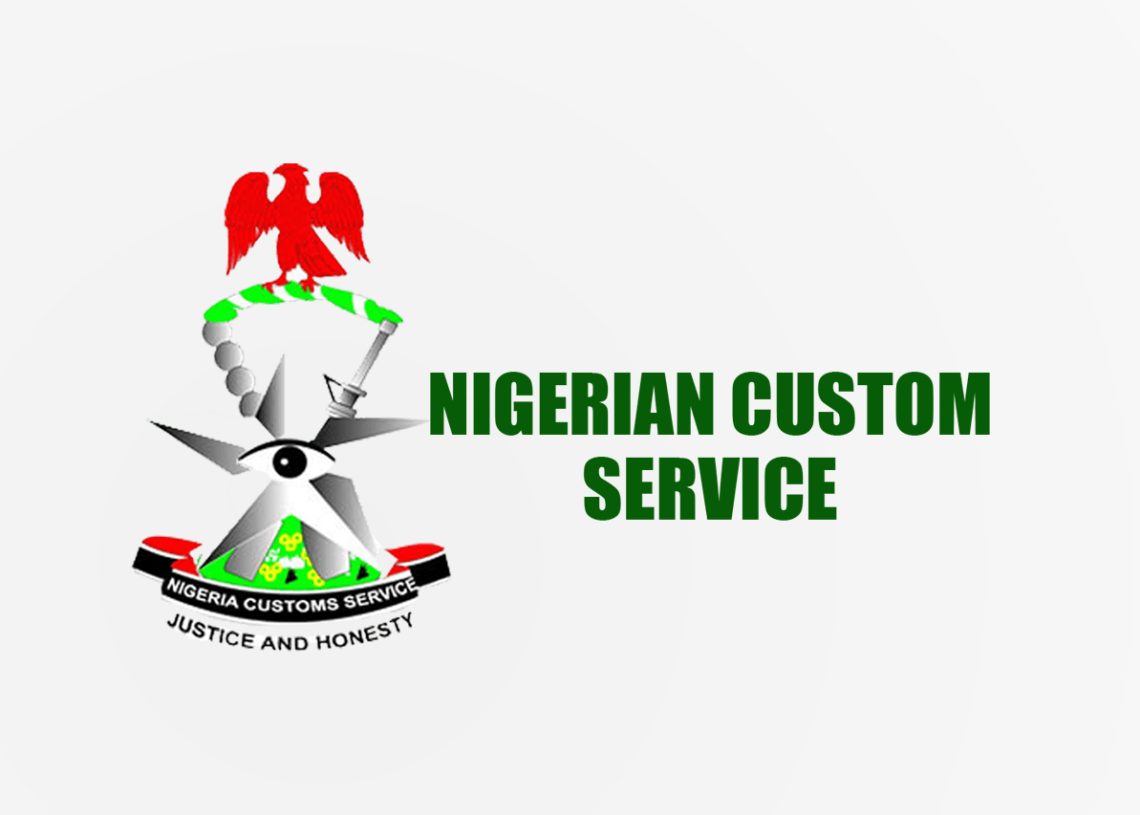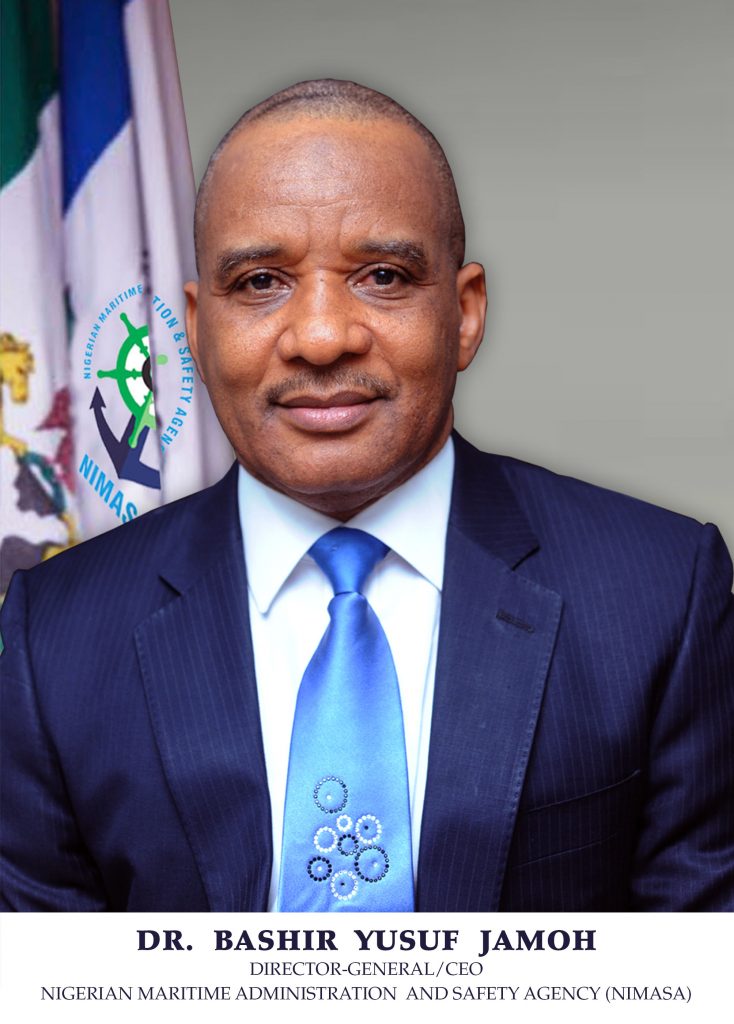
NIMASA BOSS, BASHIR YUSUF JAMOH’S THREE YEAR-OLD PURPOSEFUL LEADERSHIP IMPACTED POSITIVELY IN NIMASA ACHIEVING ITS MANDATE
Not many are surprised at the giant strides that had been achieved by Bashir Jamoh, Director General, Nigerian Maritime Administration and Safety Agency, NIMASA, in the last three years. This is more pronounced the near eradication of Piracy, sea robbery and kidnapping of ship Crew members for ransom in the Nigerian waters and the Gulf of Guinea.
The Laudable efforts of the NIMASA boss and his Management team, appears to have been recongnised by the International Community , Foreign Shipping Companies and the leadership of the International Maritime Organisation, IMO, a maritime agency of the United Nations, UN, including the International Maritime Bureau, IMB.
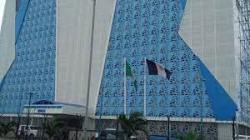
There is no gain-saying the fact in the last three years Jamoh, the Director General, in NIMASA, who has remained committed to the actualization of of his three- point agenda: Maritime Safety, Maritime Security and Shipping Development in line with the agency’s mandate has pursued it to its logical conclusion.
Between March 10, 2020, and now, the Maritime Regulatory Agency, Chief Executive Officer, CEO, and his team, were said to said to have passionately pursued the three 3s, which are critical to the survival and effectiveness of the Nigeria’s maritime industry decisively, thus making a bold statement, that with purposeful leadership, things could work in any Organisation. He got it right.
Recall that in handing over to Jomoh, the current Chief Executive Officer, CEO, of the agency , described as the poster boy of the nation’ maritime industry, Dakuku Peterside, a political ally of Rotimi Amaechi, a former governor of Rivers state and immediate past minister of Transportation had said that he could not wish for a better person to succeed him than the present Director General of the agency because of his ‘’immense knowledge and Commitment to the growth of the sector.
Many believe that he could achieve that much within three years in office as the DG of NIMASA, because he has both the professional and technical experience, spanning 30 years on the job. He may have been well prepared for the onerous national assignment because of his close working relationship with industry stakeholders as a technocrat.
He was said to have effectively combined his ‘’core values of Commitment on the job, Accountability, Professionalism, Integrity, Excellence, Teamwork, Discipline and Leadership’’ to the good of the agency in turning it around. As a prelude to achieving the success, he was said to have organised and facilitated Leadership training and manpower development programmes in many countries including the United Kingdom, UK,the North American country of the United States, US, United Arab Emirate, South Africa, Brazil,Malaysia and Sweden, for the staff.
The agency, under his Leadership had signed a Memorandum of Understanding, MoU, with the World Maritime University, in Sweden, aimed at enhancing Capacity Development to grow the nation’s maritime sector. This is in addition to the training and development of Seafarers.
Between October 2021 and now, Jamoh, the NIMASA boss, was said to have facilitated the training and employment of 800 the seafarers , currently on board ships many shipping Companies, both within and outside the country. NIMASA reports shows that 235 of the Seafarers are still undergoing the training in Greece and India while another set of 200 Seafarers, are currently in Egypt an India undergoing the training programme.
Until he finally took over from the Rivers state born politician on March 10, 2020, as the Director General of NIMASA, the IMB, Piracy Reporting Centre, PRC, had continued record high Pirates rate in Nigerian waters are signing a different song: drop in piracy activities in Nigerian waters and the Gulf of Guinea.
This is evident going by the 2022, half tear report of the IMB, which shows that none of the 58 piracy and sea robbery incidents of attacks on ships and seafarers recorded globally, none occurred in Nigeria. It is on record that in the first half of 2019, the IMB, had recorded 21 cases of vessels attack out of the 78 cases of global maritime and sea robbery activities in Nigerian waters.
Indeed, the effective deployment of the $195 million maritime Assets procured by President Muhammadu Buhari’s Administration for the Deep Blue Project , domiciled in the agency , which includes maritime security platforms that would facilitate rapid response to piracy , sea robbery activities and hostages taken and other related crimes within the Nigeria’s waters and the Exclusive Economic Zone, EEZ, was said to have helped the agency anti-piracy war.
The Federal Government procured maritime security Assets that were said to have been delivered by the Israeli ntractor, HLSI Security Systems and Technologies to the agency between 2020 and 2022, which included i6 Armoured vehicles, for Coastal Patrol, 17 Intervention Boats, two Special Mission Vessels, DB Abuja and DB Lagos, two Special Mission Aircrafts, three Helicopters and four Unmanned Aerial Vehicles, UAVs.
Going by an official report signed by Osagie Edward , an Assistant Director and the agency spokesperson, made available to The Forward News, the agency recorded one incident of Piracy attacks in Nigeria waters and the Gulf of Guinea, in May, 1022, six incidents in 2022, and 35 cases in 2020 and 2019 respectively. The increasing Piracy rate in Nigerian maritime domain and the Gulf of Guinea, may have encouraged Jamoh and his Management team to go back to the drawing board and restrategise on how to deal with the Criminal elements by Collaborating with other related security agencies.
It is not surprising why the Nigerian Navy, under the close watch of Vice Admiral Awwal Zubairu Gambo is operating and maintain the sea Assets which the Nigerian Air Force operates and maintains , the air Assets while the Land Assets : Command, Computer and Intelligence C4i, coastal surveillance and Collaboration with the International Navies for Law Enforcement off Nigerian waters and the series of meetings under the umbrella of Guinea Maritime Coordination Forum, Shared Awareness and Confliction , was said to have contributed meaningfully to the success of the anti-Piracy war and sea robbery in the Gulf of Guinea, particular, in the last three years.
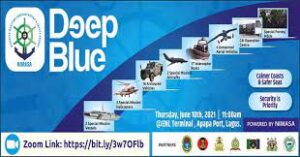
The C4i centre, Training Facilities was said to have been used to train the various security agencies personnel involved in the Deep Blue Project on the handling of its Assets and its effective implementation to clamp down on the pirates, sea robbers and kidnappers in the Nigerian waters and the Gulf of Guinea.
Enough for Maritime Security. We turn to the agency implementation of its maritime Safety agenda, under the Jamoh’s Administration. Aware that shipping is critical to global trade and most vulnerable in terms of safety, may have informed why the International Maritime Organisation, IMO, has adopted the Safety of Life at Sea , SOLAS, Convention, to ensure the safety of those involved.
It was not surprising why the Nigerian government has domesticated the Convention, and NIMASA, empowered by the enabling Legislations has made it as a critical aspect of its job to ensure safety of ships and the Crew on board , through proper enforcement of the IMO SOLAS ,Convention. This may have resulted in the removal of abandoned ships wrecks in Nigeria waters to guarantee safety of Navigation geared towards a Competitive maritime sector in Nigeria as approved by the Federal Executive Council in 2021. There are indications over 3000 ship wrecks litter the Nigeria coastline but the FC, was said to have approved the removal of the shipwrecks from Badagry to Tincan Island water ways in the first phase of the contract.
This was quickly followed with the approval for the removal of the ship wrecks in other zones of Nigeria, comprising of the western zone with Headquarters in Lagos, the nation’s Commercial nerve centre, Eastern zone, with Headquarters in PortHarcourt, and the central zone, which has its Headquarters in Warri, Delta state.
Maritime: How Jamoh’s Three Year-Old Purposeful Leadership Impacted Positively In NIMASA Achieving It’s Mandate
3 days ago Stephen UbannaBusiness / Economy / Maritime / TrendingNo Commenton Maritime: How Jamoh’s Three Year-Old Purposeful Leadership Impacted Positively In NIMASA Achieving It’s Mandate
Share this
By Stephen Ubanna
Not many are surprised at the giant strides that had been achieved by Basir Jamoh, Director General, Nigerian Maritime Administration and Safety Agency, NIMASA, in the last three years. This is more pronounced the near eradication of Piracy, sea robbery and kidnapping of ship Crew members for ransom in the Nigerian waters and the Gulf of Guinea.
The Laudable efforts of the NIMASA boss and his Management team, appears to have been recongnised by the International Community , Foreign Shipping Companies and the leadership of the International Maritime Organisation, IMO, a maritime agency of the United Nations, UN, including the International Maritime Bureau, IMB.
NIMASA Apap Office Complex
There is no gain-saying the fact in the last three years Jamoh, the Director General, in NIMASA, who has remained committed to the actualization of of his three- point agenda: Maritime Safety, Maritime Security and Shipping Development in line with the agency’s mandate has pursued it to its logical conclusion.
Between March 10, 2020, and now, the Maritime Regulatory Agency, Chief Executive Officer, CEO, and his team, were said to said to have passionately pursued the three 3s, which are critical to the survival and effectiveness of the Nigeria’s maritime industry decisively, thus making a bold statement, that with purposeful leadership, things could work in any Organisation. He got it right.
Recall that in handing over to Jomoh, the current Chief Executive Officer, CEO, of the agency , described as the poster boy of the nation’ maritime industry, Dakuku Peterside, a political ally of Rotimi Amaechi, a former governor of Rivers state and immediate past minister of Transportation had said that he could not wish for a better person to succeed him than the present Director General of the agency because of his ‘’immense knowledge and Commitment to the growth of the sector’
Many believe that he could achieve that much within three years in office as the DG of NIMASA, because he has both the professional and technical experience, spanning 30 years on the job. He may have been well prepared for the onerous national assignment because of his close working relationship with industry stakeholders as a technocrat.
IHe was said to have effectively combined his ‘’core values of Commitment on the job, Accountability, Professionalism, Integrity, Excellence, Teamwork, Discipline and Leadership’’ to the good of the agency in turning it around. As a prelude to achieving the success, he was said to have organised and facilitated Leadership training and manpower development programmes in many countries including the United Kingdom, UK, the North American country of the United States, US, United Arab Emirate, South Africa, Brazil, Malaysia and Sweden, for the staff.
The agency, under his Leadership had signed a Memorandum of Understanding, MoU, with the World Maritime University, in Sweden, aimed at enhancing Capacity Development ‘’to grow the nation’s maritime sector’’. This is in addition to the training and development of Seafarers.
Between October 2021 and now, Jamoh, the NIMASA boss, was said to have facilitated the training and employment of 800 the seafarers , currently on board ships many shipping Companies, both within and outside the country. NIMASA reports shows that 235 of the Seafarers are still undergoing the training in Greece and India while another set of 200 Seafarers, are currently in Egypt an India undergoing the training programme .
Until he finally took over from the Rivers state born politician on March 10, 2020, as the Director General of NIMASA, the IMB, Piracy Reporting Centre, PRC, had continued record high Pirates rate in Nigerian waters are signing a different song: drop in piracy activities in Nigerian waters and the Gulf of Guinea.
This is evident going by the 2022, half tear report of the IMB, which shows that none of the 58 piracy and sea robbery incidents of attacks on ships and seafarers recorded globally, none occurred in Nigeria. It is on record that in the first half of 2019, the IMB, had recorded 21 cases of vessels attack out of the 78 cases of global maritime and sea robbery activities in Nigerian waters.
Indeed, the effective deployment of the $195 million maritime Assets procured by President Muhammadu Buhari’s Administration for the Deep Blue Project , domiciled in the agency , which includes maritime security platforms that would facilitate rapid response to piracy , sea robbery activities and hostages taken and other related crimes within the Nigeria’s waters and the Exclusive Economic Zone, EEZ, was said to have helped the agency anti-piracy war .
The Federal Government procured maritime security Assets that were said to have been delivered by the Israeli ntractor, HLSI Security Systems and Technologies to the agency between 2020 and 2022, which included i6 Armoured vehicles, for Coastal Patrol, 17 Intervention Boats, two Special Mission Vessels, DB Abuja and DB Lagos, two Special Mission Aircrafts, three Helicopters and four Unmanned Aerial Vehicles, UAVs.
Going by an official report signed by Osagie Edward , an Assistant Director and the agency spokesperson, made available to The Value News, the agency recorded one incident of Piracy attacks in Nigeria waters and the Gulf of Guinea, in May, 1022, six incidents in 2022, and 35 cases in 2020 and 2019 respectively. The increasing Piracy rate in Nigerian maritime domain and the Gulf of Guinea, may have encouraged Jamoh and his Management team to go back to the drawing board and restrategise on how to deal with the Criminal elements by Collaborating with other related security agencies.
It is not surprising why the Nigerian Navy, under the close watch of Vice Admiral Awwal Zubairu Gambo is operating and maintain the sea Assets which the Nigerian Air Force operates and maintains , the air Assets while the Land Assets : Command, Computer and Intelligence C4i, coastal surveillance and Collaboration with the International Navies for Law Enforcement off Nigerian waters and the series of meetings under the umbrella of Guinea Maritime Coordination Forum, Shared Awareness and Confliction , was said to have contributed meaningfully to the success of the anti-Piracy war and sea robbery in the Gulf of Guinea, particular, in the last three years.
Deep Blue project Maritime Security Assets For Anti-Piracy Operations
The C4i centre, Training Facilities was said to have been used to train the various security agencies personnel involved in the Deep Blue Project on the handling of its Assets and its effective implementation to clamp down on the pirates, sea robbers and kidnappers in the Nigerian waters and the Gulf of Guinea.
Enough for Maritime Security. We turn to the agency implementation of its maritime Safety agenda, under the Jamoh’s Administration. Aware that shipping is critical to global trade and most vulnerable in terms of safety, may have informed why the International Maritime Organisation, IMO, has adopted the Safety of Life at Sea , SOLAS, Convention, to ensure the safety of those involved.
It was not surprising why the Nigerian government has domesticated the Convention, and NIMASA, empowered by the enabling Legislations has made it as a critical aspect of its job to ensure safety of ships and the Crew on board , through proper enforcement of the IMO SOLAS ,Convention. This may have resulted in the removal of abandoned ships wrecks in Nigeria waters to guarantee safety of Navigation geared towards a Competitive maritime sector in Nigeria as approved by the Federal Executive Council in 2021. There are indications over 3000 ship wrecks litter the Nigeria coastline but the FC, was said to have approved the removal of the shipwrecks from Badagry to Tincan Island water ways in the first phase of the contract.
This was quickly followed with the approval for the removal of the ship wrecks in other zones of Nigeria, comprising of the western zone with Headquarters in Lagos, the nation’s Commercial nerve centre, Eastern zone, with Headquarters in PortHarcourt, and the central zone, which has its Headquarters in Warri, Delta state.
An insider confirmed that that the Jamoh led agency had engaged the services of the Naval Dockyard in Victoria Island, Lagos, to repair its operational vessel , Millenia Iand Millenia II, vessels and five others for deployment for enforcement purposes. Given the steps taken to remove the wrecks as approved by the FEC, an an elated Jamoh, is optimistic that it will go a long way ‘’to enhance its search and rescue operations , port and state administration , amongst others.
Another major move by Jamoh, the NIMASA, CEO, was to actualise his vision of the country’s fleet expansion and establishment of ship repairs yard. Note that shipping is responsible for over 90% of international transportation of goods that sustain the global supply chain, which is a significant component of the world economy, enhancing imports and exports of goods and services.
Jamoh, the NIMASA helmsman, has made Industry stakeholders to understand that the agency is poised to advance the country’s shipping and ensuring a conducive environment for Commercial shipping and encouraging more indigenous participation in the global shipping trade. He was said to have used his close working relationship with Muazu Jaji Sambo, an Engineer and Taraba state born minister of Transportation to get the Presidential approval for the disbursement of the Cabotage Vessels Finance Fund, CVFF, to the indigenous Ship owners which has been in the coller over the last 17 years.
The CVFF, was established by former President Olusegun Obasanjo in 2003, to be funded with the two percent deduction of any job performed by any vessel engaged in coastal trade in Nigeria as well as tariffs and fees for licenses and waivers granted vessels.
The minister of Transportation had confirmed on December 9, 2022, that five money deposits banks, MDBs, Zenith, Polari, Polaris, UBA and Jaiz , have been approved by the Nigerian President as the primary lending Institution for the CVFF, which was said to have grown to over $350 million and N16 billion.
Determined to ensure that the five selected banks as the primary ending Institutions for the disbursement of the CVFF, to set the necessary machinery in motion without further delay for the disbursement of the funds that may have informed why the NIMASA boss held a closed door meeting with the top executive Management of the PLIs, to ensure that they are on the same page.
Jamoh, the NIMASA CEO, had said that they are engaging the banks on the management and disbursement of the fund because they are the ones that have professional knowledge and technical know-how which will help in the reduction of risk to avoid the same mistakes of the Ship Acquisition and Ship Building Fund, SASBF, which was completely mismanaged.
Given an insider information of the management of the CVFF, this time around, he disclosed that the banks are expected ‘’to come up with issues such as interest rate, tenor , collateral and other requirements needed to access the funds’’.
He was said to have made it clear to the industry operators who cares to listen that ‘’the interest rate that would be used in giving out the loans to beneficiaries should be of international best practice, because the fund being disbursed is in the North American country of the United States , US, dollars.
Describing the CVFF, as a win for the indigenous ship owners and the banks, Jamoh, the NIMASA Director General would want the Primary Institutions, ‘’to look at the windows of opportunity inherent for the benefit of all parties involved’’.
The Cabotage Act, Jamoh had said provides that NIMASA makes available 50% of the funds to be disbursed to the indigenous ship-owners while the PLIs are expected to support the project with 35%. The ship-owners, according to informed source are expected to make their contribution of 15% of whatever amount of money is needed for the procurement of the vessel in the international ship market.
Worried by the delay by the PLIs in disbursing the CVFF to the indigenous ship-owne to acquire ocean-going vessels that would assist in increasing the country’s fleet , may have informed why Sambo, the minister of Transportation, has asked the banks to fast –track the process of giving qualified Nigerian ship-owners the loan to buy their ships.
The minister was said to have made the call at a recent meeting with the Representatives of the heads of the five approved banks for the disbursement of the fund. There indications that Jamoh, the NIMASA boss, and the Managing Director of Nigerian National Petroleum Corporation, NNPC, now baptized, Nigerian National Petroleum Company Limited, NNPCL, with the passage of the Petroleum Industry Bill , PIB, by the National Assembly and signed into Law by the President in August 2021, and other industry stakeholders were at the all-important meeting.
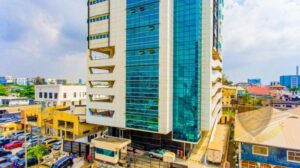
The Jamoh led Management of NIMASA, may have capped their achievement in the agency with the purchase of a N20 billion office Complex in Victoria Island, Lagos, to relocate from its present office Complex at the over- crowded Apapa Area, described by analysts as a waste of funds. This is because billions of naira have been spent over the years by past and present Director Generals of the agency to redesign the Apapa office to bring to International standard.
